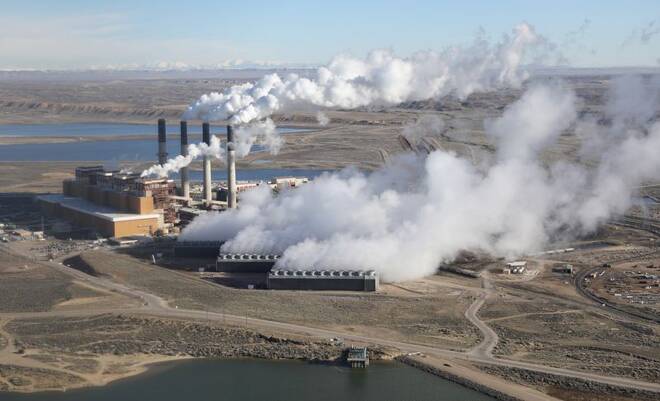Advertisement
Advertisement
Analysis-Set free or set back? Manchin narrows Biden’s climate options
By:
By Valerie Volcovici and Timothy Gardner
By Valerie Volcovici and Timothy Gardner
WASHINGTON (Reuters) -Senator Joe Manchin’s decision to halt support for President Joe Biden’s climate legislation after more than a year of negotiations has left Democrats with limited options to tackle climate change, an important goal for the president’s base.
The West Virginia senator, a conservative Democrat who is the biggest recipient of donations from fossil fuel companies in Congress and who owns a stake in a coal brokerage his son runs, left fellow Democrats seething after he said he could not support new spending on climate measures or tax increases. The decision came even as lawmakers came close to a deal with Biden administration officials.
The latest talks were over $300 billion in tax credits for industries including solar and wind power, carbon capture from power plants and nuclear power which generates virtually emissions-free electricity. That was down from about $555 billion in credits after Manchin, the pivotal vote in the evenly divided Senate, said he raised concerns about the effect of spending on inflation. He blocked the bill even though many of its measures were designed to eventually reduce energy costs.
Clean energy industry advocates urged lawmakers to pass more narrow legislation that would extend the solar and wind power tax incentives crucial to the industry.
“It’s appalling that Congress missed this critical opportunity to accelerate affordable, clean energy deployment over the next decade — especially at a time when energy prices are crushing many Americans,” said American Clean Power Chief Executive Heather Zichal.
Senator Ron Wyden, chair of the Senate Finance Committee said Manchin’s decision to walk away was frustrating since “nearly all issues in the climate and energy space had been resolved.” “We need to salvage as much of this package as possible,” Wyden said in a statement.
It was also a blow to Biden, who has been bleeding support from his core constituency: young people and environmentalists key to his 2020 election. About 94% of Democrats under 30 said they want another candidate to run for president in 2024, according to a New York Times and Siena College survey published this week.
“I will not back down,” Biden said in a statement issued on the day he met with Saudi Arabia’s Crown Prince Mohammed bin Salman in talks in which energy supply was on the agenda and as his administration was eager to see Gulf oil producers boost output.
“If the Senate will not move to tackle the climate crisis and strengthen our domestic clean energy industry, I will take strong executive action to meet this moment.”
Manchin told a West Virginia radio station on Friday he has not walked away but wants to wait until July inflation figures and see whether the Fed raises interest rates again before making final decisions on tax incentives.
Set free?
Other clean energy advocates saw an opportunity for Biden to issue executive actions rather than try to appease Manchin with concessions like approving oil and gas projects.
“Free at last,” Senator Sheldon Whitehouse wrote on Twitter late Thursday after Manchin said he would not support climate provisions in the bill. “With legislative climate options now closed, it’s now time for executive Beast Mode.”
Whitehouse laid out 10 federal actions that the White House could take to sidestep Congress and tackle climate policies using executive authority — though such actions could be reversed or weakened by a future president.
Those range from requiring power and industrial plants to install carbon capture technology and tightening limits on other air pollutants from coal and gas-fired power plants. The Department of Justice could pursue litigation against Big Oil, and the administration could impose carbon border tariffs on imports from countries that are more lax on climate than the United States.
The Supreme Court this month decided to effectively restrict the Environmental Protection Agency from issuing emissions rules involving matters of major “economic and political significance” — potentially limiting executive actions.
But Jamal Raad, the head of nonprofit group Evergreen Action which helped craft the legislation, said there are “still a lot of existing authorities under the Clean Air Act” to take on pollutants such as particulates from the power sector that can have the added benefit of lowering carbon emissions.
Raad said Biden is now free to drop some of the items that were on the table to win Manchin’s support, such as preserving federal oil and gas leasing and approving ConocoPhillips’ Willow oil drilling project in Alaska.
Other green groups urged Biden to declare a climate emergency and use the Defense Production Act to advance clean technologies.
Absent the bill, the U.S. is poised to fall well below Biden’s pledge to slash greenhouse gas emissions by at least 50% below 2005 levels by 2030 — achieving only a 24% to 35% cut, a report by researchers at Rhodium Group this month said.
With limited options to achieve its target, the Biden administration’s role as a climate leader is undermined, said Alden Meyer, international climate policy expert at E3G. The U.S. will need to rely on states and cities to pick up the slack.
“With this failure of Congress to take responsible action, climate leaders at all levels of society — states, cities, business, investors, and others — will need to expand their already substantial efforts, he said. But those action will not be sufficient to meet Biden’s 2030 pledge, he said.
(Reporting by Timothy Gardner; editing by Jonathan Oatis)
About the Author
Reuterscontributor
Reuters, the news and media division of Thomson Reuters, is the world’s largest international multimedia news provider reaching more than one billion people every day. Reuters provides trusted business, financial, national, and international news to professionals via Thomson Reuters desktops, the world's media organizations, and directly to consumers at Reuters.com and via Reuters TV. Learn more about Thomson Reuters products:
Did you find this article useful?
Latest news and analysis
Advertisement
